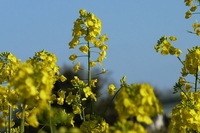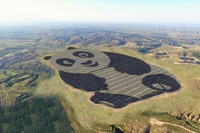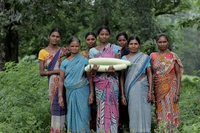
The top news stories of 2017 for sustainability
These are the top news stories of 2017 and the people who have most left a mark on a year that has been intense yet also rewarding from the point of view of social and environmental sustainability.
These are the top news stories of 2017 and the people who have most left a mark on a year that has been intense yet also rewarding from the point of view of social and environmental sustainability.
India’s indigenous Kondh community has relied on forest food for millennia. As climate change reduces agricultural yields, this source of nutrition could be crucial for food security.
Trump’s decision to recognise Jerusalem, considered holy by three religions, as Israel’s capital has met with a widespread backlash from the rest of the world. Why it’s so controversial.
Millions of Bahá’ís celebrate the bicentenary of Bahá’u’lláh’s birth with messages of peace, oneness, empowerment and spiritual unification. The photos of festivities all around the world.
Japan is the first country to experiment mining deep-sea hydrothermal vents. These hostile yet unique habitats are rich in life and precious minerals, leading to interest in both researching and mining them.
The fraud and corruption witnessed in the illegal introduction of Bt cotton in India are now being repeated with GM mustard. Farmers and our biodiversity were sacrificed for Monsanto’s profits.
Lab meat, also known as cultured or bio meat, is grown in a laboratory using animal cells entirely outside of an animal’s body. China has signed a 300 million dollar deal to partner with Israeli high-tech companies like SuperMeat, Future Meat Technologies and Meat the Future, which are three of only eight companies in the world growing
Amidst the determined push by biotech lobbies to impose genetically modified (GM) mustard in India, civil society movements and farmers’ organisations are once again doing battle to oppose this new product of genetic engineering. If approved, this would become India’s first GM food crop, which poses grave health and environmental risks. The release of GM mustard would threaten farmers’
Un panda gigante è la forma del nuovo impianto fotovoltaico costruito in Cina ed entrato in funzione in questi giorni. Una centrale bella da vedere ma che vuole soprattutto parlare di sostenibilità ai giovani.
The future scenario of the global food system is a matter of worry for experts and the scientific community because of the vulnerability of agriculture to the impacts of global warming. It is estimated that agricultural productivity will decline 15 to 30 per cent by 2080 in the developing regions most subject to climate change – Africa, South Asia and Central America. For some








